Towards an end to the mullahs' impunity
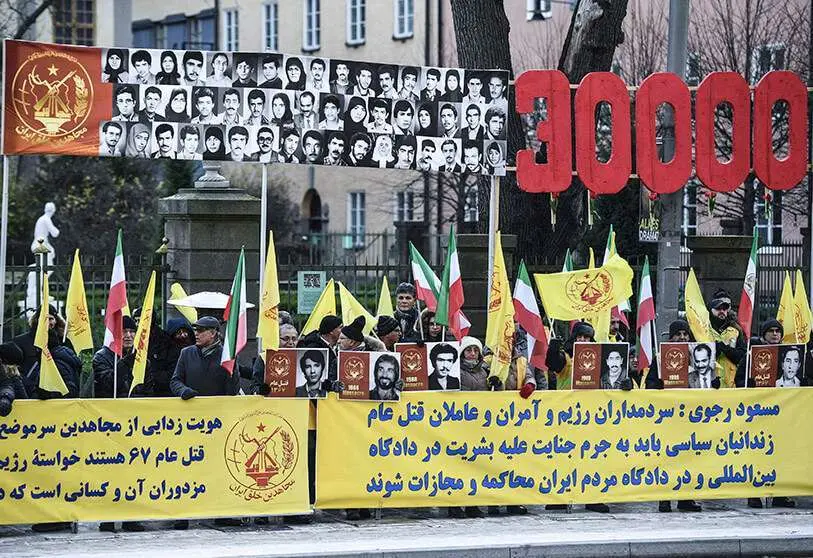
On the basis of universal jurisdiction, one of the perpetrators of the massacre of thousands of political prisoners in Iran in 1988 is on trial in Sweden for the first time. More than 90% of those executed were People's Mujahedin (PMOI/MEK), the main Iranian opposition that advocates freedom and the separation of religion and state.
During the first hearing of his defence, Hamid Nouriy testified that he was stationed in the sinister Evin prison from 1982 to 1993, and that the information about the executions in the summer of 1988 was "a fanciful, illusory, empty, false and baseless story". After some 40 testimonies against him, he described the massacre of the summer of 1988 as "fiction". He denied Khomeini's terrible fatwa, written in his own handwriting, ordering the execution of 30,000 political prisoners. He denied that Ayatollah Montazeri, Khomeini's successor at the time, said - in a publicly available recording - to a death commission, of which current President Ebrahim Raisi was a member: "You have committed, under the Islamic Republic, the greatest crime for which history will condemn us". Let us overlook the fact that the current Iranian president declared before taking office that he was proud of his past.
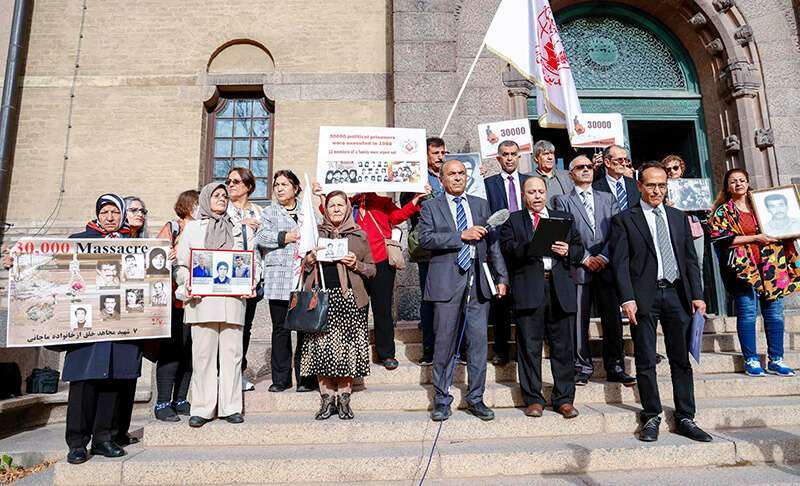
It is not Hamid Noury who is on trial in the Swedish court, but a regime that has been sowing death in Iran and the region for more than 40 years. A regime that holds the record for executions per capita and remains the main executioner of women and children. Yet for all these years, Iran's dictatorship has benefited from total impunity, thanks to the complacent policies of Western countries.
Iranians are now commemorating the second anniversary of the November 2019 uprising. A movement crushed in blood with at least 1,500 young insurgents shot dead in the street by security forces, while the internet was cut off. Supreme Leader Ali Khamenei had given the order. An Iranian sociologist, in an interview given to a website close to the government, claims that the 2019 uprising was fundamentally different from all previous ones, including the 2018 Green Movement or the 2008 uprising, and was mainly political.
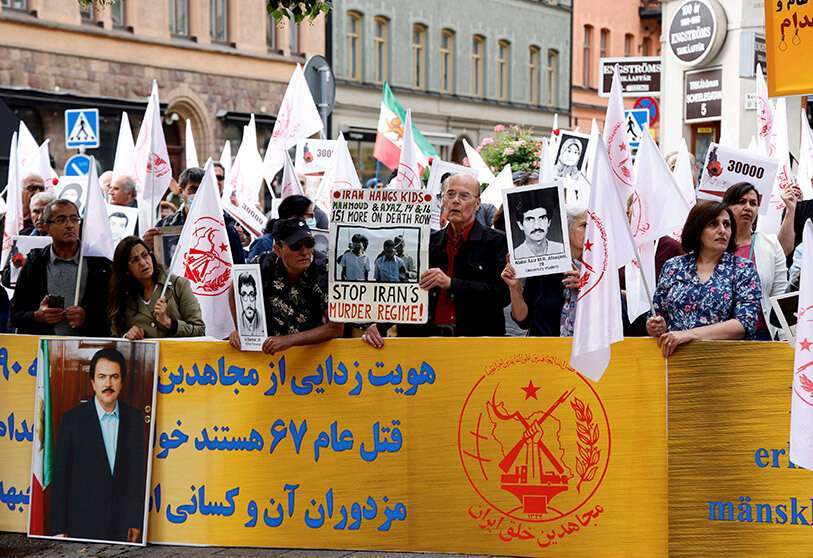
The young insurgents, from all walks of life, shared a political desire for radical regime change. They opposed the nuclear project, interference in the Middle East and the killing of the Pashtuns in Syria and Iraq. They saw the ineffectiveness of their vote and their will in the destiny of their country.
A new era has begun. There is now a before and an after November 2019. As Amnesty International Sweden's affiliate noted, "this is the first time that a person accused of participating in this great crime has been brought before an international court, so it is incredibly symbolic".
Professor Kazem Rajavi, Iran's first ambassador to the UN in Geneva after the fall of the Shah, was assassinated in Coppet in 1990 by a Tehran commando because he denounced the massacre of political prisoners in the summer of 1988. The Swiss Federal Criminal Court decided on 23 September 2021 to re-launch the investigation into this assassination under the heading of "crimes of genocide and/or crimes against humanity".
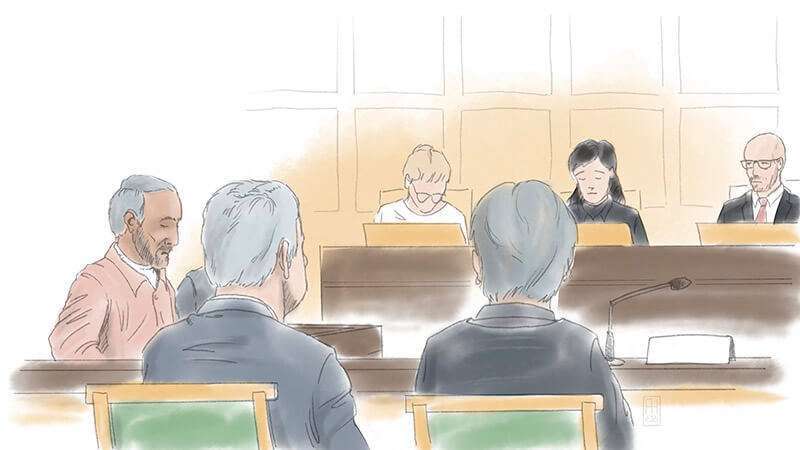
A Swedish court is now drawing the world's attention to a genocide committed thirty-three years ago, which the regime went to great lengths to conceal, including the destruction of mass graves. In London, a People's Court, made up of leading human rights experts and lawyers, has been examining the November 2019 murder. Last January, a Belgian court sentenced an Iranian diplomat to 20 years in prison for directing an attack on an annual meeting of the Iranian Resistance. He did not appeal. Three of his accomplices, sentenced to long prison terms, appealed and the trial was held on 17-18 November.
We are at a turning point. It is the end of the Iranian regime's impunity. A new era has been ushered in by Iran's youth. But while times have changed, attempts to return to the 2015 nuclear deal, the Iranian leadership continues to develop its missiles and regional meddling, programmes that, along with internal repression, are eating into the nation's wealth and oil money.
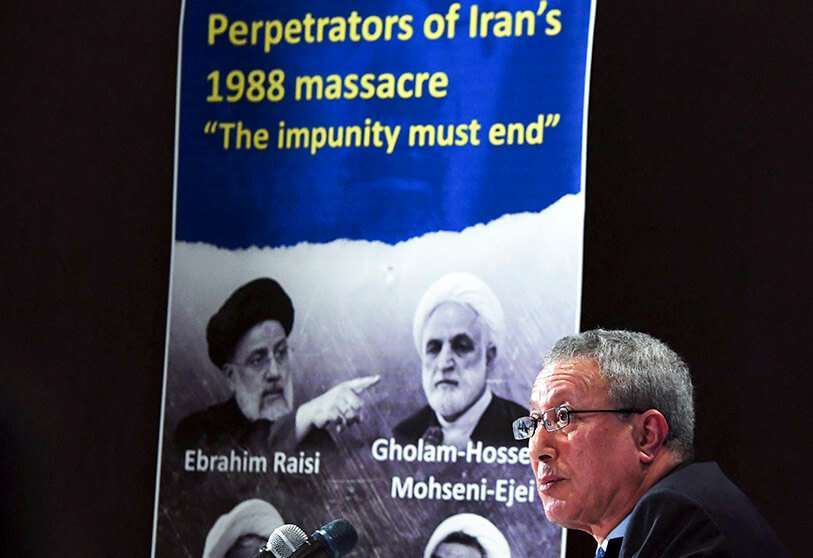
As the international community, led by the UN and its Office of the High Commissioner for Human Rights, addresses the culture of impunity in Iran, it contributes to neutralising Tehran's pursuit of nuclear weapons and supports Iranians in their desire for change and freedom in Iran. It also invites us in Switzerland, and in particular in Geneva, to reflect on how we assess this situation.
Article published in the Tuesday 21 December edition of Le Temps https://www.letemps.ch/opinions/vers-fin-limpunite-mollahs

